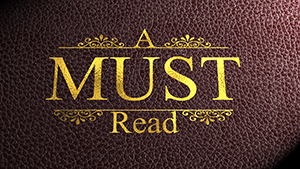Roy Barzilai’s ‘The Objective Bible’
 My review this week is on an absolutely fascinating philosophical/socio-psychological work by Roy Barzilai: The Objective Bible: Western Civilization’s Struggle for Philosophic Liberation from a Herd-Mentality and Pagan Mysticism. This book presents Barzilai’s thesis that United States is headed for a splitting of civilizations much like the split in ancient Israel, and supports this thesis by analyzing Western philosophical tendencies, the Hebrew Bible and its various interpretations thoughout history, and the historical roots of pagan philosophical traditions in Western culture. The Objective Bible is fairly new, having just come out in March, and is now nominated for an award by the British Society for the History of Science. Barzilai has poured an immense amount of research into this work, a fact that is quite evident, and manages to present his argument to the reader using a natural flow of information. As a student of philosophy, I was immediately interested in this book, and took time to carefully read and reread the crucial building blocks of Barzilai’s thesis. I have read a great number of philosophical works, both ancient and contemporary (both the time period and works of today’s time), and I have scarcely seen an argument as well-formulated as Barzilai’s. From a technical standpoint, the book is superb. While not the easiest place for a newcomer to philosophy to understand, Barzilai goes to great lengths to ensure that the reader is given all needed background information before the main analysis and comparison is presented. A piece of advice: if you do read this book, read it gradually, allowing the ideas presented enough time to fully develop in your head.
My review this week is on an absolutely fascinating philosophical/socio-psychological work by Roy Barzilai: The Objective Bible: Western Civilization’s Struggle for Philosophic Liberation from a Herd-Mentality and Pagan Mysticism. This book presents Barzilai’s thesis that United States is headed for a splitting of civilizations much like the split in ancient Israel, and supports this thesis by analyzing Western philosophical tendencies, the Hebrew Bible and its various interpretations thoughout history, and the historical roots of pagan philosophical traditions in Western culture. The Objective Bible is fairly new, having just come out in March, and is now nominated for an award by the British Society for the History of Science. Barzilai has poured an immense amount of research into this work, a fact that is quite evident, and manages to present his argument to the reader using a natural flow of information. As a student of philosophy, I was immediately interested in this book, and took time to carefully read and reread the crucial building blocks of Barzilai’s thesis. I have read a great number of philosophical works, both ancient and contemporary (both the time period and works of today’s time), and I have scarcely seen an argument as well-formulated as Barzilai’s. From a technical standpoint, the book is superb. While not the easiest place for a newcomer to philosophy to understand, Barzilai goes to great lengths to ensure that the reader is given all needed background information before the main analysis and comparison is presented. A piece of advice: if you do read this book, read it gradually, allowing the ideas presented enough time to fully develop in your head.
Now, does all of this mean that the book is flawless? Of course not. If arguments dealing with topics this large in scope were flawless, we would all pat ourselves on the back, call it a job well done, and stop discussing some of the most important issues regarding the human experience. In particular, I have trouble agreeing with the supposed pervasiveness of relativist views that Barzilai suggests. Substance physicalism is perhaps the most influential philosophical notion in our world today. For those who are unfamiliar with the term, substance physicalism is the assertion that all that exists in our world are bits of space-time matter. This view effectively eliminates the possibility of any supernatural or nonphysical forces, and, most philosophers of mind agree, relegates the phenomenon of human consciousness to merely being the sum of electrical pulses and chemical reactions. This notion is also borne from the advances in the studies of quantum physics: needless to say, it is widely accepted in both the scientific and philosophical fields. This means that everything is subject to the forces of cause and effect. While ethics and certain instances of perception may seem relative, there is still a consensus that factual states of being exist, whether we can perceive them or not. In addition, any assertion of fact or truth is an appeal to objectivity. This means that the entire scientific pursuit is searching for an abstract, yet objective, concept of knowledge. While some scientists support relativism, they are necessarily appealing to the existence of Platonic, universal ideas like truth, knowledge, error, or any other notion that allows the human mind to file away information. That being said, disagreeing with a point of an argument often means you are starting to grasp the argument’s meaning, and I still found myself ultimately swayed by Barzilai’s work. Roy Barzilai has managed to provide philosophically, socially, and religiously interested readers with an absolutely fascinating piece of literature. In my humble opinion, The Objective Bible has fully deserved the attention it has received in the academic world, and encourage all who find this topic interesting to read it. As Barzilai, himself, points out, Western society is caught at a critical crossroads in its search for identity. Even if you don’t agree with Barzilai as to the danger presented by this cultural conflict, The Objective Bible is a thought-provoking, fantastically-structured analysis of Western society in relation to our seemingly contradictory philosophical and religious past.









